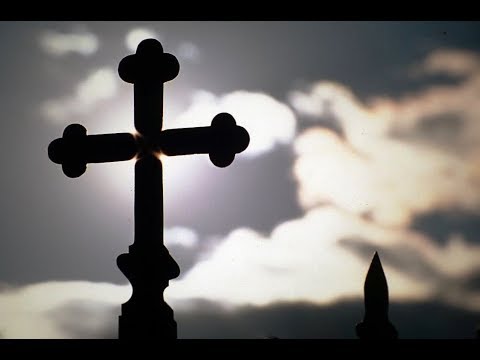GEORGIA – The chairman of the Southern Baptist Convention workgroup tasked with investigating churches facing abuse allegations resigned Friday, saying his group has no investigative authority.
Ken Alford announced his resignation as chairman of the SBC executive committee’s bylaws workgroup on Saturday evening in the wake of public outcry over his workgroup’s seemingly hasty decision to “clear” six of the 10 churches that SBC President J.D. Greear tasked the group with investigating. Alford claimed, however, that the SBC did not give the bylaws workgroup any investigative authority, forcing the group to rely on information provided solely by Greear to determine whether the churches “evidenced indifference in addressing sexual abuse.”
Alford also asserted that the task of investigating and determining whether those churches and any others facing allegations of abuse were in cooperation with the SBC was far beyond the capability of the bylaws workgroup which is comprised of “three pastors, a president of a Bible college, a church accompanist, an attorney, a dentist, and a dental hygienist who is the WMU [Women’s Missionary Union] National President,” according to Alford.
“What should be obvious is that the task of conducting extensive investigations of churches is an assignment far beyond the capability of our small Bylaws Workgroup,” Alford said in a statement provided to The Daily Caller News Foundation. “Beyond that fact, however, is the reality that neither the Bylaws Workgroup nor the Executive Committee has any investigative authority given to it by the SBC.”
Greear demanded in his February 18 address to the SBC’s executive committee that they scrutinize ten specific churches “and any other churches that receive similar allegations,” of abuse.
“I urge the bylaws workgroup of the administrative committee to take the necessary steps to determine whether the following churches meet the standards of having a faith and practice which closely identifies with the Convention’s adopted statement of faith as outlined in Article 3 of the SBC Constitution,” Greear said.
Alford said the Bylaws Workgroup tried to comply with Greear’s request quickly, but could only make determinations about the churches based on information that Greear volunteered.
“The E.C. and the Convention have traditionally relied on statements provided to them by churches themselves in order to determine if any church has acted in a manner that would be in violation of the standards as outlined in the governing documents of the Convention,” Alford wrote.
“With those facts in mind, and with a desire to accommodate President Greear’s request, the Bylaws Workgroup requested that he provide us with any information which he wished to share with us that tended to demonstrate that a particular church was worthy of consideration as to whether or not it was currently in cooperation with the Convention,” he added.
The Bylaws Workgroup used Greear’s statements and four provisions in a proposed amendment to the SBC constitution, pictured below, to determine whether the churches named had covered up or failed to adequately respond to abuse.
The Workgroup determined days later that six of the 10 churches required “no further inquiry,” a result which infuriated abuse victims’ advocates and Southern Baptist faithful. An investigative report from the Houston Chronicle and the San Antonio News-Express featured all of those churches and revealed over 700 people had suffered abuse in SBC churches over the past 20 years.
“The statement of the SBC executive committee work group was a Saturday night massacre of hope for any near-term change on sexual abuse within the Southern Baptist Convention,” activist Christa Brown told The Houston Chronicle.
Alford argued that the public outcry over the determination was unfair, since in his view the bylaws workgroup was forced to produce a judgement without an investigation. He conceded, however, that the outcry was understandable.
“As stated above, the Bylaws Workgroup actually conducted NO investigation, because we were not authorized to do so, and we did not ‘clear’ any churches, because that determination was not a part of our responsibility,” Alford wrote. “We simply sought to ascertain if the information that President Greear had shared with us was sufficient to warrant further inquiry.”
Alford ended the announcement of his resignation saying that he hoped it would be “used by the Lord to be a help in our current environment.”
“I for one believe that what we need is the ultimate MRI – we need the Master’s Radical Intervention! Only by His supernatural intervention will we recover the spiritual health that is so desperately needed in this hour! May the rehab begin!” he concluded.
Those who have following developments within the SBC for decades like Benjamin Cole, who runs The Baptist Blogger website, said that Alford’s resignation does little if anything to heal what they see as the SBC’s broken response to sexual abuse.
“The resignation of one Executive Committee chairman does not begin to address the systemic failure of this important governing body to properly respond to the problem of sex abuse in Southern Baptist churches that has been reported by the Houston Chronicle,” Cole told TheDCNF. “The convention does not merely need a change of leadership, it needs a change of culture.”




Comments are closed.